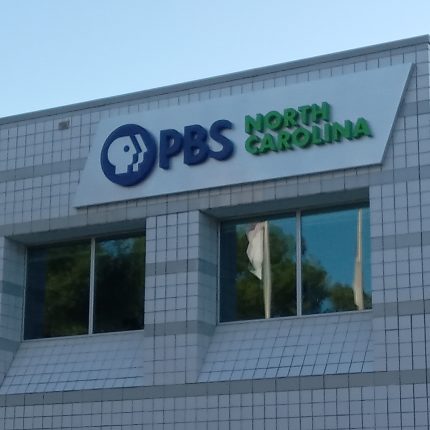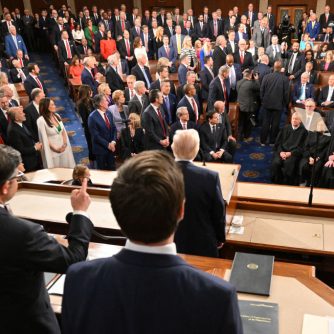On this episode of Carolina Newsmakers, Don Curtis sits down with David Crabtree, CEO of PBS North Carolina, to discuss the station’s 70-year legacy, its role in providing public service broadcasting, and the challenges and opportunities ahead. Crabtree, a longtime anchor at WRAL before transitioning into public media leadership, shares insights into the evolution of PBS North Carolina, the state of journalism, and the future of public television in a rapidly changing media landscape.
David Crabtree highlights PBS North Carolina’s origins as UNC-TV, which officially launched on January 8, 1955, as an educational broadcasting service. Initially serving select areas like Greensboro, Mebane, and Chapel Hill, it has since expanded into a statewide network of 13 transmitters. The vision behind the network was spearheaded by Bill Friday and other North Carolina leaders who recognized the power of free, educational television for all residents.
Over the years, the station has evolved to provide a broad mix of educational, cultural, and public affairs programming. While its roots were primarily in academic instruction, the introduction of PBS programming expanded its reach, bringing children’s shows, documentaries, and public affairs programming to North Carolinians. Today, the network operates four distinct channels, including one exclusively dedicated to children’s programming.
Crabtree emphasizes that PBS North Carolina remains committed to providing access to public television for all residents, free of charge. He even notes that if viewers lack an antenna, PBS North Carolina will provide one to ensure access.
Challenges and the Future of Public Broadcasting
One of the biggest challenges facing PBS North Carolina, according to Crabtree, is financial sustainability. The organization receives about one-third of its budget from the UNC system, which comes from state appropriations restricted to salaries. The remainder must be raised through donations, grants, and corporate sponsorships.
Crabtree acknowledges that public media is under political scrutiny, with some federal and state lawmakers questioning government funding for public broadcasting. He warns that if federal funding were to be lost, public media would shift toward private support, potentially reducing oversight and accessibility.
The Role of Public Media in Journalism
Crabtree expresses concern over the decline of local newspapers and the rise of news deserts, where communities no longer have access to reliable journalism. He warns against the increasing blurring of opinion and news, particularly on cable television and social media.
He reflects on the dangers of misinformation and emphasizes PBS North Carolina’s commitment to fact-based, unbiased reporting. Crabtree advocates for media literacy education to help the public distinguish between trustworthy journalism and misleading content.
Artificial Intelligence and the Future of PBS North Carolina
Artificial intelligence is becoming an important tool for public media, and Crabtree believes it can be leveraged in content creation, editing, and audience research. However, he also expresses caution, noting that AI cannot replace human judgment, ethical storytelling, or journalistic integrity.
Looking Ahead: PBS North Carolina’s 75th Anniversary and Beyond
As PBS North Carolina approaches its 75th anniversary, Crabtree envisions a future where the station remains a public service broadcasting pillar. Upcoming projects include:
- Special programming to commemorate PBS North Carolina’s history and impact
- Expanded local documentary storytelling, with a focus on rural communities and untold stories
- Increased outreach for children’s programming to ensure educational access for all North Carolina families
- Partnerships to prepare for the America 250 celebrations marking the nation’s 250th anniversary
Throughout the discussion, David Crabtree reaffirms his belief that public broadcasting remains an essential service, providing educational, cultural, and journalistic content that North Carolinians can trust. He stresses the importance of continued support from viewers, donors, and policymakers to ensure that PBS North Carolina remains a vital resource for future generations.





